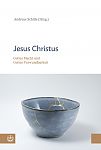on Character Formation, Ethical Education, and the Communication of Values in Late Modern Pluralistic Societies
Michael Welker | John Witte | Stephen Pickard (Eds.)
Pluralism has become the defining characteristic of modern societies. Individuals with differing values clamor for equality. Organizations and groups assert particular interests. Social movements flourish and fade. Some see in this clash of principles and aims the potential for a more just human community, while others fear the erosion of enduring culture. Yet beneath this welter stand powerful and pervasive institutions, whose distinctive norms profoundly shape our moral commitments and character—notably the family, the market, the media, and systems of law, religion, politics, research, education, health care, and defense.
Drawing on scholarship from five continents, many disciplines, and diverse religious perspectives, this series examines the impact of these various institutions on moral education, character, and values. As globalization carries the shifting dynamic between individuals and institutions into every part of the globe, the contributors hope that this conversation will help address the increasing challenges confronting our pluralist societies and our world.
The overwhelming majority of the contributions in this volume deal with the Christian religion, as pluralistic societies today thrive substantially in Christian environments.
Contributions by Peter Carnley, Gregor Etzelmüller, Johannes Eurich, Jennifer Herdt, Admiel Kosman, Piet Naudé, Waihan Ng, Friederike Nüssel, Bernd Oberdorfer, Martin Percy, Stephen Pickard, Raja Sakrani, William Schweiker, Philipp Stoellger, Milton Wan, Renee Ip, Michael Welker and John Witte.
[Der Einfluss der Religion auf Charakterbildung, ethische Erziehung und Kommunikation von Werten in spätmodernen pluralistischen Gesellschaften]
Spätmoderne pluralistische Gesellschaften sind von einer unendlich vielfarbigen Individualität ihrer Bürgerinnen und Bürger und einer Fülle von Zusammenschlüssen und Gruppierungen geprägt. Diese schwer zu fassende »Pluralität« wird von vielen Menschen als Quellgrund der Freiheit begrüßt, von manchen Innenstehenden und vielen Außenstehenden aber auch als soziales Chaos gefürchtet. Doch dieser Pluralität steht eine begrenzte Zahl von sogenannten »sozialen Systemen« gegenüber, die in hohem Maße organisatorisch, institutionell und normativ geprägt sind.
Die überwältigende Mehrzahl der Beiträge diese Bandes behandeln die christliche Religion, da pluralistische Gesellschaften heute wesentlich in christlichen Umgebungen gedeihen.






